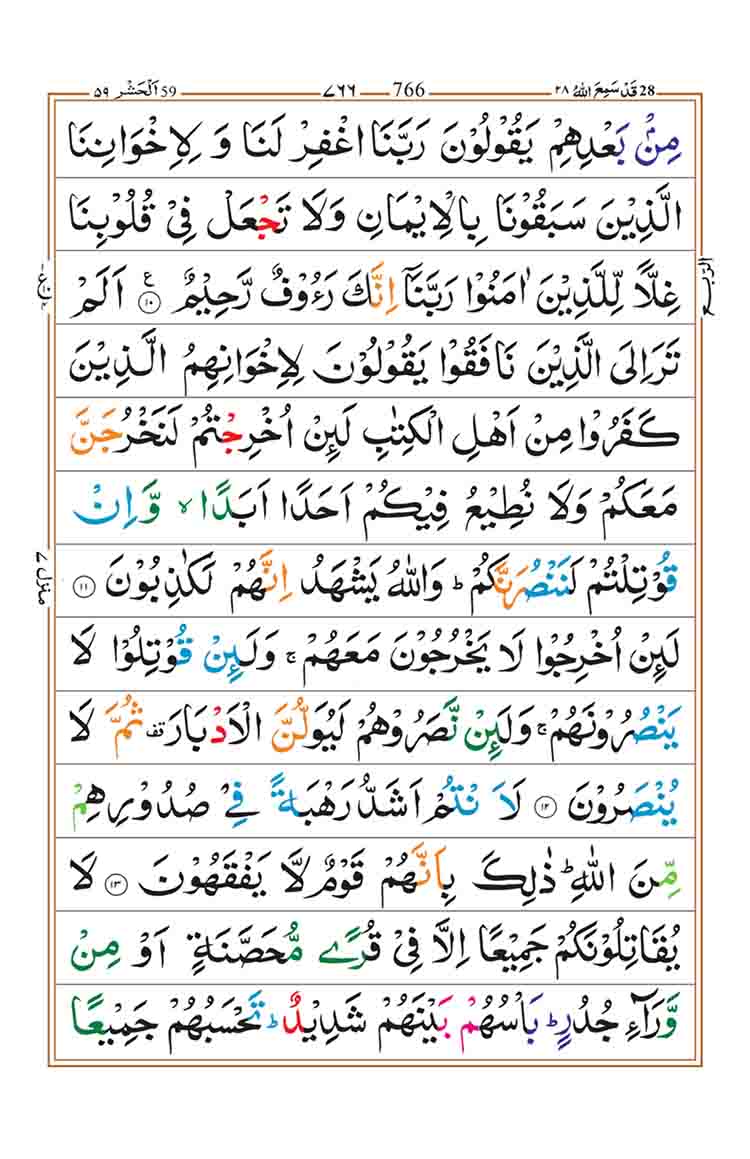Surah Al Hashr is the 59th chapter of the Holy Quran. The meaning of the title is “The Exile”. It was revealed in Medina. It has 24 verses and 3 rukus. Surah Al Hashr is located in Juz’ 28.
Surah Al-Hashr begins by highlighting the power and attributes of Allah, emphasizing His control over all things. It then narrates the story of the expulsion of the Jewish tribe of Banu Nadir from Madinah due to their treacherous behavior. The Surah also discusses the importance of charity, obedience to Allah and His Messenger, and the concept of migration for the sake of Allah.
Surah Al-Hashr also serves as a source of inspiration and motivation. It reminds believers of the importance of unity and the strength of being part of a righteous community. It encourages believers to support and care for one another, fostering a sense of brotherhood and sisterhood.
The Benefits Of Reciting Surah Al-Hashr
- Seeking protection from Allah, as the Surah contains verses that ask for His protection from evil and harm.
- Surah Al-Hashr encourages believers to reflect on the importance of charity and generosity.
- It highlights the virtues of giving and sharing wealth for the sake of Allah, reminding believers of the blessings and rewards associated with acts of charity.
- Reciting Surah Al-Hashr with understanding and contemplation can deepen one’s faith and increase their awareness of Allah’s power and control over all things.
- It serves as a reminder to seek protection in Allah, to strive for obedience and loyalty, and to practice generosity and kindness towards others.
In summary, Surah Al-Hashr highlights the power and attributes of Allah, warns against treachery and disloyalty, emphasizes the importance of charity and obedience, and encourages unity and community support.
(PDF should be attached)
| Surah Al Hashr Ayats | Surah Al Hashr Words | Surah Al Hashr letters | Surah Al Hashr Rukus |
|---|---|---|---|
| 24 | 497 | 1943 | 3 |
Colour Coded Tajweed Rules
|
|
|
|
|
|
|
|
| Read More About Tajweed Rules | ||||||





